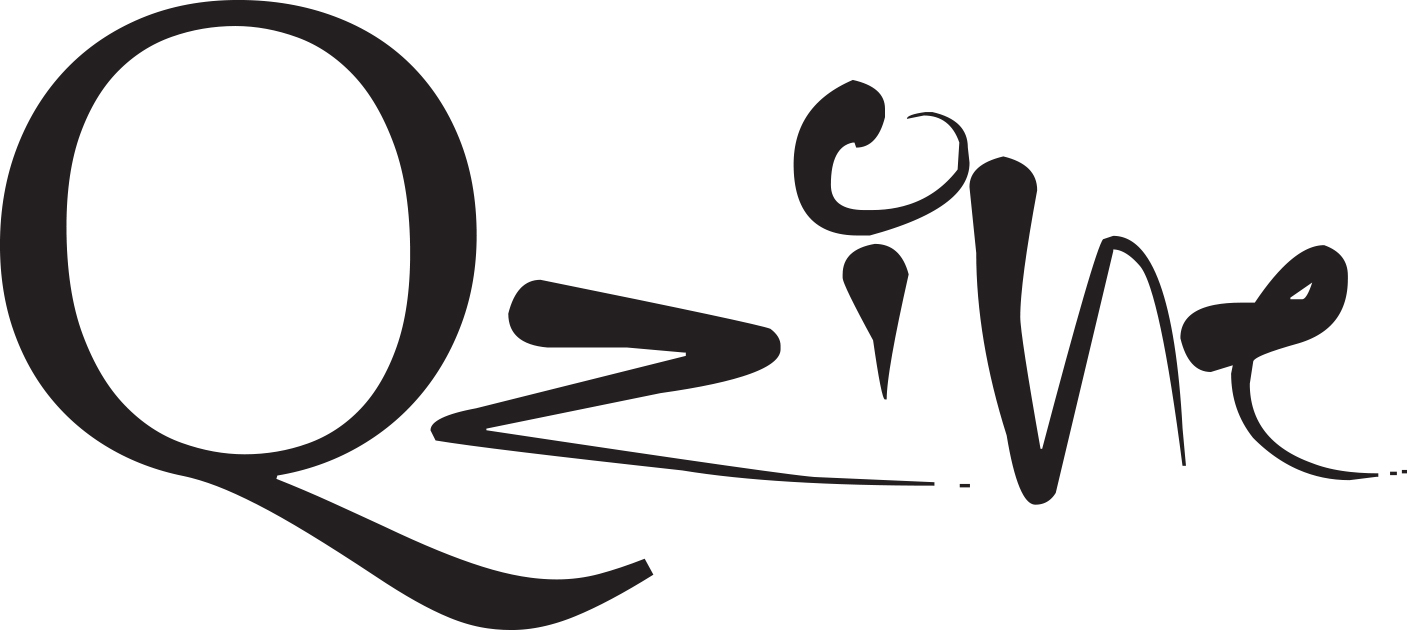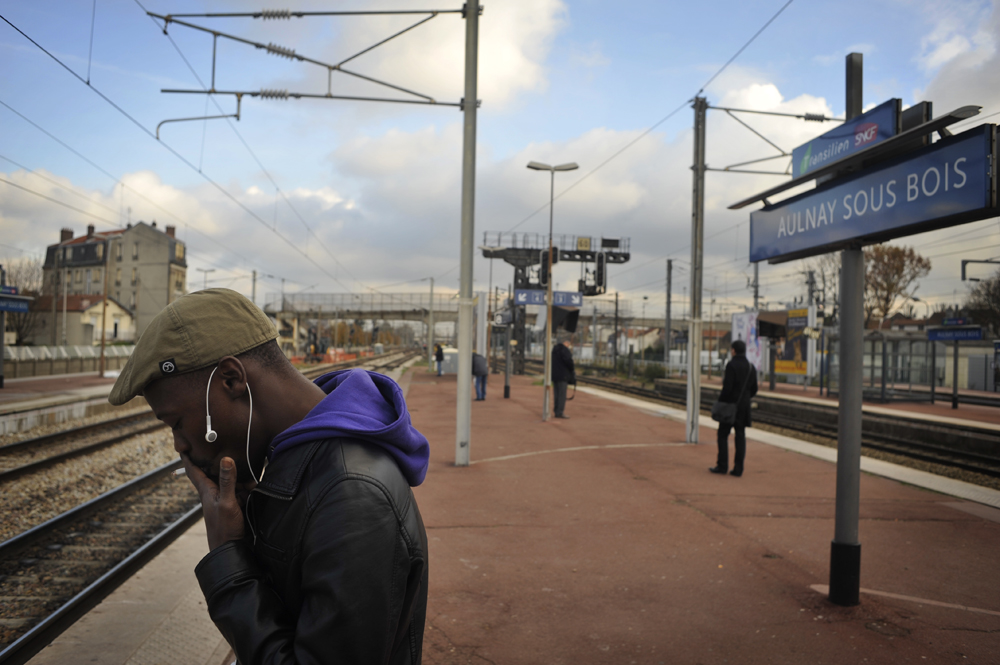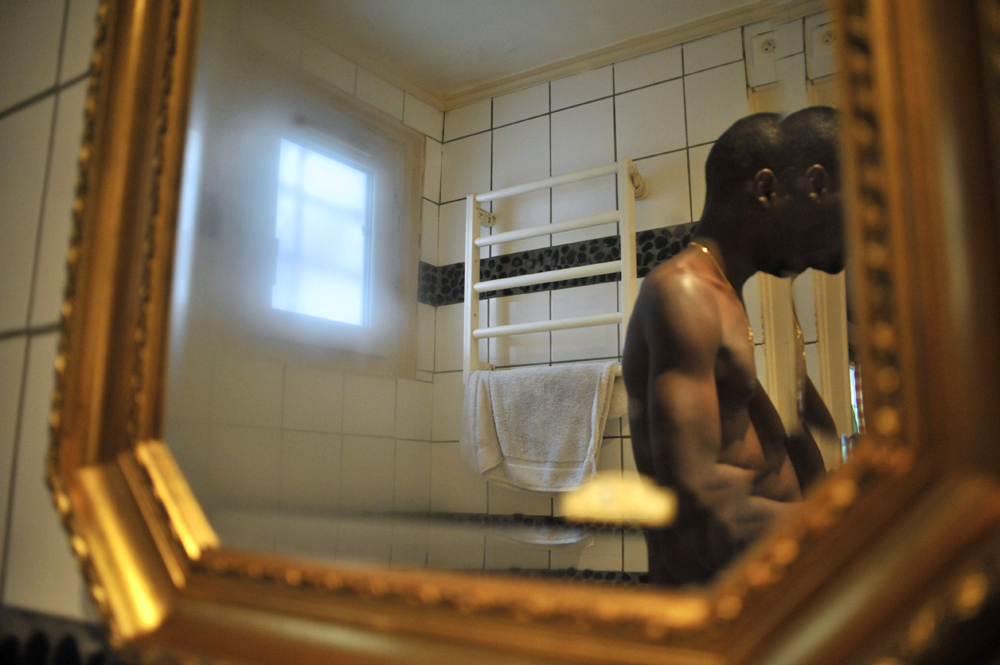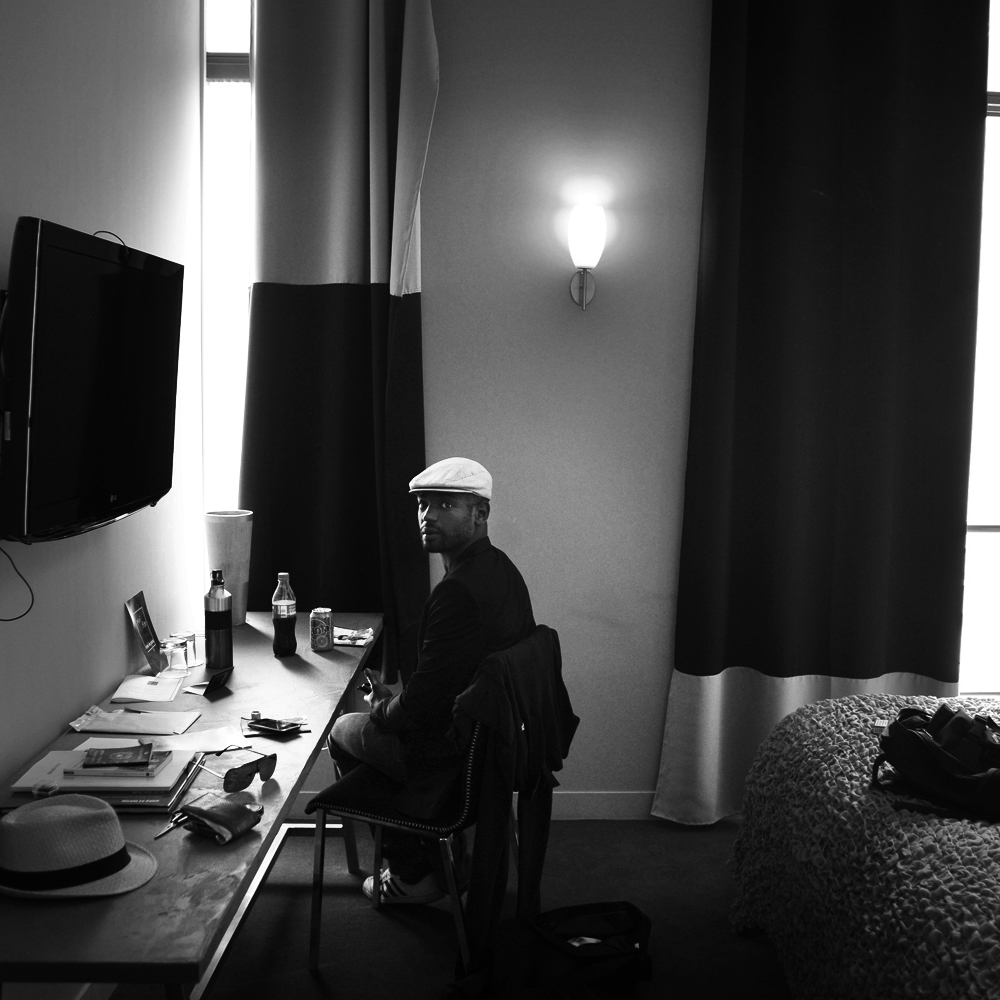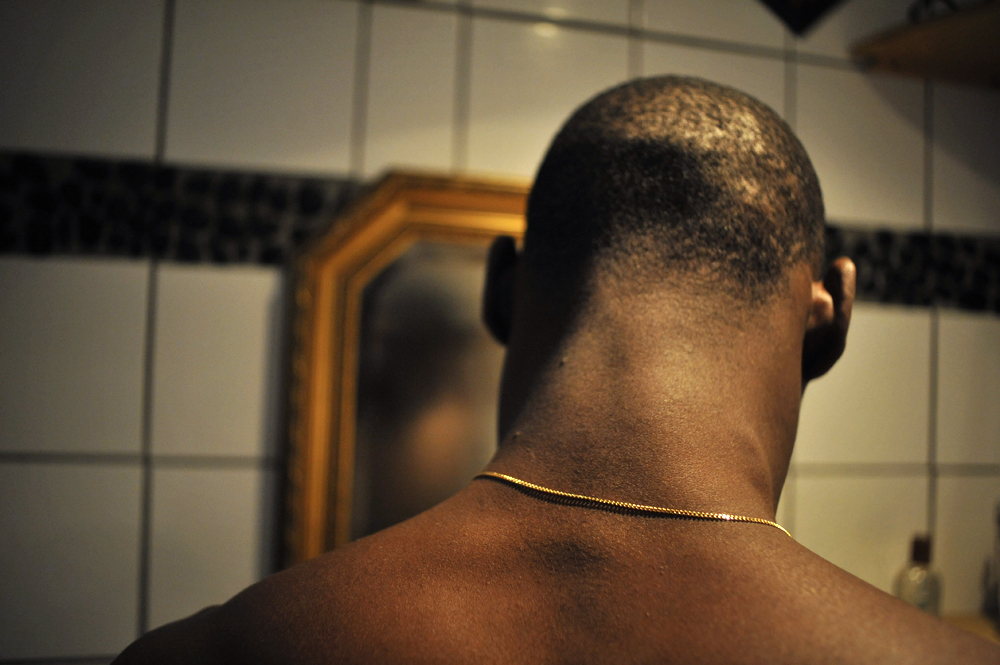Les étiquettes sexuelles
Par Bonny Sepora
Chaque fois qu’un mec flirte avec moi, il finit toujours par me demander à un moment ou à un autre, parfois indirectement, mais le plus souvent sans détour, si je suis passif ou versatile. J’en ai l’habitude mais n’empêche que cette question me met toujours mal à l’aise. Il m’est parfois arrivé d’être approché par des mecs qui me disent, droit dans les yeux, que je serais bien à ” pénétrer “. Une fois, un mec s’est même permis de me dire que je ressemblais à quelqu’un qui aimait bien se faire ” piler “.
N’est-ce pas étrange qu’une personne ne sachant rien demoi pense qu’elle a le droit de me collerune étiquette?
Pourquoi est-ce que le collage d’étiquettes sexuelles semble être le jeu préféré de la plupart des gays? Et pourquoi est ce que chez les gays noirs, ce type de jeu semble avoir une plus grande importance ?
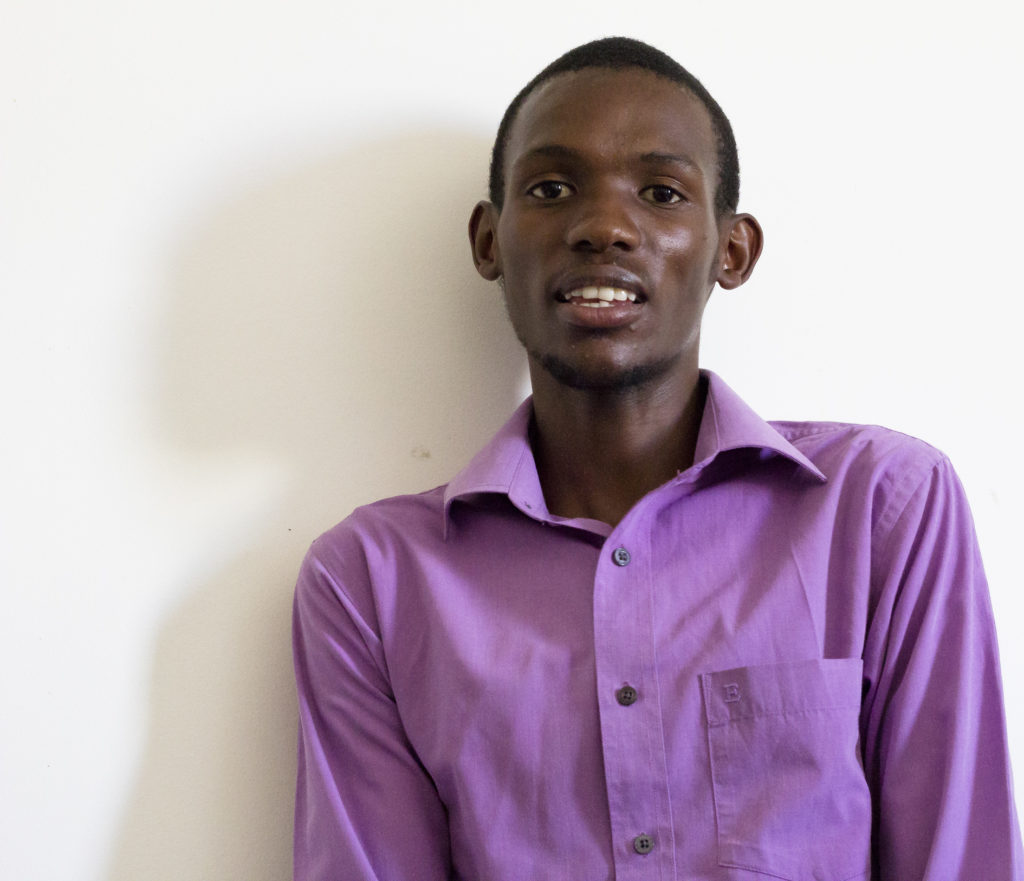
Actifs, exclusivement actifs, actif oral, actif-passif ou versatile, versatile-actif, versatile-passif, exclusivement passif, passifs viriles, etc. tant d’étiquettes toutes aussi dénigrantes les unes les autres. Je dis dénigrantes parce que généralement lorsque les gays africains adoptent ces étiquettes, ils mentent. Autrement dit, beaucoup d’entre nous vivent dans un état de déni. *
Je n’ai aucun problème avec le fait qu’un mec décide de se coller une étiquette sexuelle, du moment qu’il est honnête avec les raisons de son choix. Par contre, j’ai un problème quand les gays et bisexuels africains utilisent ces étiquettes pour se démarquer de ce qu’ils considèrent comme leur étant inférieurs.
Quand nous nous enfermons dans cette logique selon laquelle, se laisser pénétrer par un autre homme fait de nous un “passif ” et nous enlève une partie de notre masculinité, nous intériorisons inconsciemment ces valeurs religieuses et sociales qui ont justement servies à nous opprimer depuis des décennies et qui n’ont plus leur place dans la vie d’un gay ou d’un bisexuel en ces temps modernes.
Si vous faites un tour sur Gaydar.co.za ou Adam4Adam.com, vous trouverez un nombre disproportionné de profiles qui se disent actifs. Si 90% d’entre nous sont des actifs, alors qui “se fait piler?”
Curieux que je suis, j’ai décidé de faire un test simple. J’ai créé un profil sur Adam4Adam ; profil sur lequel j’ai indiqué que j’étais “uniquement actif.” Je l’ai baptisé Tumo, lui ai associé un énorme pénis et pris la peine de préciser que celui qui aura la chance de décrocher un rencard avec Tumo devrait s’apprêter à ” se faire péter la rondelle ” (car c’est ce genre de phrases absurdes qui sont courantes sur ce type de sites). Si vous ne trouvez rien de dérangeant dans cette phrase, c’est que vous avez peut-être besoin d’aller voir un psy.
Que pensez-vous qu’il s’est passé? Chaque fois que Tumo se connectait sur le site, de nombreux profils estampillés “ uniquement actifs ” n’arrêtaient pas de le contacter, certains le suppliant presque pour se faire défoncer par son membre disproportionné. Ils lui envoyaient leurs mensurations et en demandaient tous après du ” hard “. Quelques uns demandaient à se “faire inondé” (mais ça c’est toute une autre histoire).
Mes chers frères gays, bisexuels et autres hommes ayant des rapports sexuels avec des hommes, nous sommes tous malades et avons besoin d’aide. Notre déni profond a atteint une dimension psychologique qui frôle le malsain. Que c’est triste que nous ne soyons plus en mesure d’être honnêtes avec nous-mêmes et encore moins avec nos frères gays.
Bien sûr, je n’ai pas été surpris par le résultat de mon expérience. J’ai eu à faire du counselling envers les gays et bisexuels auparavant, alors je suis bien conscient des problèmes que nous avons avec notre sexualité. Dès notre bas-âge, on se fait appelés “tapettes”, “pédés” et j’en passe, des insultes comme pour nous rappeler que nous ne sommes que des créatures ” abominables ” destinées à bruler en enfer. Ce n’est donc pas étonnant de voir que beaucoup d’entre nous finissent par intérioriser tout cela et en arrivent à se détester eux-mêmes. Une réalité que très souvent, nous masquons dans l’alcool et la drogue.
Et puis, il y a l’émasculation des hommes noirs provoqués par le racisme et toutes ses conséquences sur l’appréhension de la psyché masculine africaine, qu’il s’agisse des homosexuels ou des hétérosexuels. La perception sociale que l’on se fait des hommes en Afrique est basée essentiellement sur une exagération et une surévaluation de leur masculinité : le machisme est tout simplement la norme ici.
Il n’est donc pas surprenant qu’il soit si difficile pour beaucoup d’entre nous d’admettre que nous aimons nous faire baisé. Nous percevons les passifs comme étant plus “gays” que les actifs et certains passifs commencent à se voir comme n’étant rien d’autre que de simples réceptacles de bites. Ils deviennent “exclusivement passifs ” – ceux-là à qui la bite ne sert à rien d’autre qu’uriner. À mon avis, ni les mecs ” uniquement actifs ” (c’est-à-dire ces actifs qui ne savent pas ce qu’est un baiser et n’osent faire des fellations), ni les mecs ” exclusivement passifs ” (à qui çà ne pose aucun problème de ne jamais être sucé) ne sont sexuellement ou psychologiquement normaux.
Les hommes noirs qui se présentent comme étant ” uniquement actifs “, tout en étant dans le déni, posent un énorme problème à notre communauté. Si vous ne pouvez admettre au fond de vous que vous aimez être pénétré, vous êtes moins susceptible d’être prêts pour des rapports sexuels protégés. Lorsque vous êtes obsédé par l’idée de vous coller une étiquette d’actif tout en ayant honte de vos désirs profonds, et qu’il vous arrive de rencontrer quelqu’un qui vous fasse vibrer le rectum, signe annonciateur d’une envie folle de se faire défoncer ; alors, vous êtes également plus susceptibles de vous laisser aller à des choses plus dangereuses et néfastes telles que la cocaïne, la méthamphétamine ou toute autre chose dans le genre. La prochaine chose qui vous arrivera par la suite, sera probablement vous faire défoncer et pisser dessus.
Plus tard, vous ferez une fixation dessus : vous êtes un actif. Mais curieusement, votre corps vous dit le contraire. Et parce que vous êtes un actif et qu’une certaine “Mojita” vous a dit que les actifs ne peuvent pas attraper le VIH, vous ne vous êtes jamais fait dépister. Quelques années plus tard, allongé sur un lit d’hôpital, on vous annonce que vous êtes atteint de SIDA (pas seulement infecté par le VIH, mais déjà atteint de SIDA). Tout cela parce que vous ne pouviez pas accepter que, comme beaucoup d’hommes – comme la plupart des gays et même certains hétéros – Vous aimez être pénétré, parce que c’est sacrément bon.
Bien sûr, il y en a qui ne ressentent pratiquement pas de douleur, les amoureux transis et ceux qui ont tout simplement de nombreux blocages par rapport à tout ce qui se passe en dessous de la ceinture et ne tirent jamais un grand plaisir à se faire pénétrer. Quatre-vingt dix pour cent de la douleur est psychologique et vient des histoires avec lesquelles on vous a bourré le crane.
Cependant, les histoires de honte ou de douleur au sujet de la pénétration ne sont pas les seuls mythes en circulation. En voici un autre qui est tout aussi néfaste. Être un actif ne vous rend pas forcément plus viril que votre partenaire qui peut accepter souffrir de se faire prendre quelques minutes, puis payer lui-même ses propres factures par la suite et vous enculer à votre tour lui aussi. La plupart des mecs ” uniquement actifs ” ont juste une plus grande bite, une allure plus masculine et tout ce qui va avec.
Comme pour toutes ces autres choses que certains mecs qui se disent exclusivement actifs affirment ne pas faire comme sucer une bite, etc. – cela voudrait tout simplement dire qu’il ne trouve pas votre sexe attirant. Si tout ce que vous pouvez faire c’est vous faire sucer et puis défoncer un trou, alors je suis désolé de vous le dire de cette manière mais, sachez que vous n’êtes pas ” un bon coup “. Il existe des gadgets sexuels qui procureraient plus de plaisir que vous à votre partenaire.
Je terminerai enrépétantsimplementque toutes ces étiquettessontfausses. Pire encore, ellesnuisent à notrecapacité àentretenir des relationsà long terme.Et il ne s’agit pas uniquement de mon point de vue ici, car des études l’ont prouvé.J’aimerais que vous y pensiez plus sérieusement, que vous preniez un moment pourréfléchir àl’étiquettesexuelleque vous utilisez.Cela représente-t-il vraiment qui vous êtes et ce à quoi vous voulez que l’on vous associe en tant que gay ou bisexuelafricain?Soyez honnête avecvous-même.Qu’y’a-t-il de mal à dire tout simplement que vous avez envie d’enculer ou de vous faire enculer ce soir ? Cela ne vousrelierapas systématiquement àune étiquette dont vous ne pourrez plus vous défaire. Qu’y’a-t-il de mal à ce que deux africains s’aiment et couchent ensemble, chacun voulant à la fois se faire plaisir et satisfaire l’autre, tout en sachantqueleur masculiniténe sera pas compromiseà cause dece qu’ilsressententou font? Être honnête avec vous-même et envers vos amants est une preuvede forceetde respect de soi-et qu’y’a-t-il deplus”viril”que cela?
Relevons le défi ensemble, gais et bisexuels d’Afrique!
